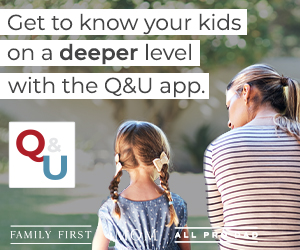When my kids were babies I remember someone telling us about a great pre-school that was right near my husband’s office. When I went over to enroll them the person helping me was exasperated and said, “You’re just trying to enroll them now?! We have a very long wait list. You really should have put them on that list two years ago.” I couldn’t believe she was serious. She was talking to me as if my kids not getting into this particular pre-school would ruin their lives.
Clearly, parents are in a race to have smart kids. Sometimes, a mom can start thinking that her child doesn’t have time to just be a kid – there’s too much to learn and too much to do. Well, take a deep breath. Helping your child become smarter starts with keeping things simple.
1. Don’t Move to Chapter Books too Quickly
So, your toddler or pre-schooler is very advanced. You don’t want them to be bored with picture books, so you push them to get interested in chapter books because that’s what smart kids read, right? Before you fast-track them through the Frog and Toad series, listen to what the experts said about the benefits of picture books, in an article in The New York Times:
Literacy experts are quick to say that picture books are not for dummies. Publishers praise the picture book for the particular way it can develop a child’s critical thinking skills.
“To some degree, picture books force an analog way of thinking,” said Karen Lotz, the publisher of Candlewick Press in Somerville, Mass. “From picture to picture, as the reader interacts with the book, their imagination is filling in the missing themes.”
Many parents overlook the fact that chapter books, even though they have more text, full paragraphs and fewer pictures, are not necessarily more complex.
“Some of the vocabulary in a picture book is much more challenging than in a chapter book,” said Kris Vreeland, a book buyer for Vroman’s Bookstore in Pasadena, Calif., where sales of picture books have been down. “The words themselves, and the concepts, can be very sophisticated in a picture book.”
2. Less Screen Time, More Real-life Time
Dr. Walt Larimore quotes a leading expert on his blog, who puts it this way:
“If Baby Einstein had been called ‘Couch Potato Kiddie,’ and the marketing had been ‘Get your child started on the joys of watching television as early as possible,’ that would have been honest marketing, and that really is what parents are buying.”
Dr. Walt also quotes studies that show babies who watch the videos are less verbally proficient than those who do not. Researchers found that for every hour that an infant between 8 to 16 months old spends watching a brain DVD, he understands, on average, 6 to 8 fewer words than a kid who didn’t do Einstein.
Bottom line – babies and young children need real-life experiences, that’s what expands their mind, not watching cartoon figures waltz across the screen to classical music. The same goes for older children. If you want smart kids, get them away from screen-time and into play time, reading time or a physically active time.
3. Don’t Let the iPhone Fool You (Or, for older kids, don’t be afraid to limit their screen time)
iPhones and smartphones have been a great help to moms. The apps can keep you organized and it’s convenient to have the Internet at your fingertips. But, isn’t it just a little too easy to hand over your phone to your child to keep them quiet or occupied? And, it might impress you that your child can figure out the intricacies of a cell phone, but that won’t help make them smarter in the real world.
Even educational games, according to one expert, should be avoided:
“Any parent who thinks a spelling program is educational for that age is missing the whole idea of how the preschool brain grows. What children need at that age is whole body movement, the manipulation of lots of objects and not some opaque technology. You’re not learning to read by lining up the letters in the word ‘cat.’ You’re learning to read by understanding language, by listening. Here the parent busily doing something and the kid is playing with the electronic device. Where is the language? There is none.” Jane M. Healy, educational psychologist
The American Academy of Pediatrics says that children under the age of two should have no screen time. Why? Children learn and grow by observing and interacting with the real world. If a child is locked into a phone screen, he might miss the real forest while looking at the fake trees on a screen.
Tell us! What are some other things that it might be good to limit or change to help make your kids smarter?








